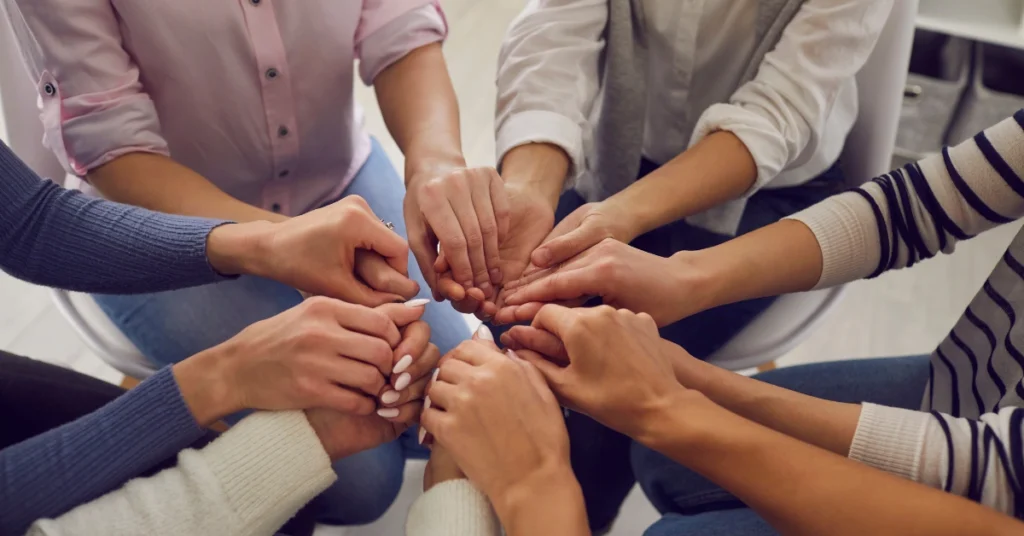Judgment doesn’t just make you uncomfortable; it shuts you down. And when you shut down, recovery can’t happen. Emotional safety is therefore more than just a nice-to-have. It’s the foundation.
Walking into a treatment center should feel like the first step toward healing. But for many women, it feels more like entering a courtroom. You walk in guarded. You look around and think, “Will they judge me for this? How did I arrive here? For not getting it right the first time?”
In this post, we’ll walk through 7 specific ways judgment-free environments help women heal faster, stronger, and more completely. If you’ve ever left a program feeling worse instead of better, the problem may not have been you. It may have been the room you were in. Let’s talk about why that matters.

Judgment-Free Rooms Help Women Heal Faster
1. Judgment makes women shut down
When women feel judged, they go quiet. They don’t share honestly. They provide surface answers to profound questions. Additionally, people begin to feel that speaking their truth aloud would be “too many” questions.
In that kind of environment, healing stalls. You can’t work through pain you’re afraid to name. Recovery depends on truth, and truth needs trust. When someone feels safe, they stop performing and start opening up. That’s where real growth begins.
2. Trauma doesn’t respond to pressure
Trauma lives in the body. Healing cannot occur when the body is constantly alert. Women who carry trauma need calm, compassionate spaces where they can feel grounded. They need to know that nothing they say will be used against them.
Judgment puts the nervous system into fight-or-flight. Safety allows the body to settle. And only in that state can real emotional work begin. When a woman feels safe, she can finally look at what hurts without fear of rejection.
You Can’t Heal If You Feel Alone
3. Judgment grows in silence
Shame tells women they’re the only ones struggling. They believe they’re beyond repair. No one else understands their situation. But then someone across the room says, “Me too,” and suddenly that shame starts to loosen.
In judgment-free groups, shared stories become healing tools. Women don’t just talk; they relate. They connect. And that connection is what dissolves the silence where shame once lived.
4. The right support creates real progress, no judgment
It’s not enough to be in a room full of people. You need the right people, those who see you and accept you exactly where you are.
Real support sounds like, “It’s acceptable to not be acceptable today.” It looks like a space where crying isn’t weakness, and silence isn’t failure. With such support, women cease striving to “do it right” and begin to engage in what is authentic. At that point, recovery begins to take shape.
Most Programs Get This Wrong
5. Too many programs miss the real issue
A lot of recovery programs focus on behavior. They treat the substance, but not the story behind it. That’s a mistake.
Addiction isn’t just about drinking or using; it’s often rooted in trauma, grief, or disconnection. Ignoring these root causes only leads to superficial healing. Women may leave those programs sober, but they often remain emotionally stuck.
Effective recovery must go much deeper than the surface. If it doesn’t, relapse becomes more likely.
6. Structure alone isn’t enough
Some programs rely too heavily on structure. There are rules, schedules, and steps. These things can be beneficial, but they’re not healing by themselves.
Without emotional safety, structure starts to feel like pressure. Women might check the boxes, but they’re doing it from fear, not freedom.
A truly judgment-free space provides women the opportunity to take their time. To question. To cry. They need to rebuild in a way that resonates with them, not just what others find acceptable.
7. You deserve care that sees you as a whole.
If you’ve been through programs where you felt ignored, misunderstood, or even blamed, you’re not alone. And you didn’t fail. You were in a space that didn’t create safety. That’s not on you.
You deserve a place where your full story is welcome. You don’t need to justify your feelings or stand by your decisions. Healing is a process that is gentle, honest, and respectful of your identity.
Conclusion: Your Healing Starts With Feeling Safe
Let safety be your starting point with judgment-free space
At Serenity Mountain Recovery, we’ve built a program that puts emotional safety first. That means no judgment. No shame. No pressure to “recover perfectly.”
We believe recovery works best when women feel supported, not watched. When they feel heard, not fixed. And when their healing moves at a pace that honors their experience.
If that sounds like the kind of support you’ve been looking for, we’re here to help.
Let’s start with one step. Book your free consultation today. You’ll be met with compassion, not judgment.

